News
38 Things To Consider Before Buying Your Next Car
Published
6 months agoon
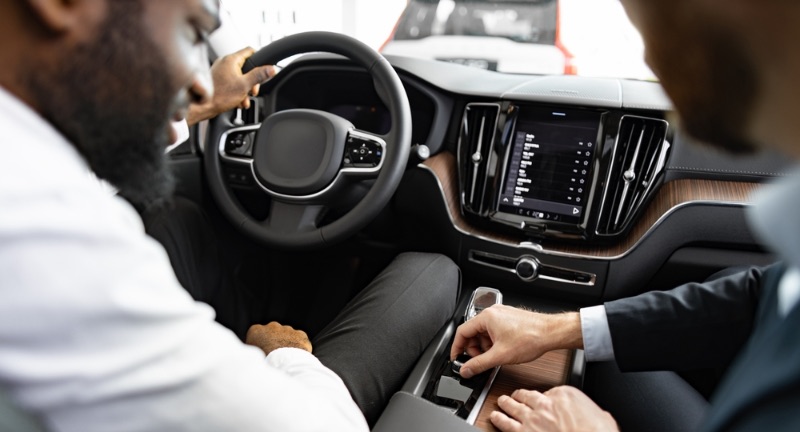
Shutterstock
Buying a car is a big financial decision that requires a lot of consideration of all the different factors. With the wide range of options available in today’s market, it is important to assess your needs, budget, and preferences to find your next vehicle. From looking at the car’s safety features and fuel efficiency to checking the reputation of the dealership, each factor plays a pretty big role in your satisfaction. Taking the time to research and compare different models and prices can save you money and help you make sure that your car will meet your needs. This guide will show you 38 key items to consider when making your decision so you can drive away with confidence.
Budget

Shutterstock
Before buying a car, it’s crucial to establish a budget to determine what you can afford. Consider the purchase price as well as additional costs such as taxes, registration, and fees. Factor in ongoing expenses like fuel, maintenance, and insurance to get a complete picture of the financial commitment. Setting a realistic budget helps narrow down your choices and prevents overspending.
Total Cost of Ownership

Shutterstock
The total cost of ownership includes not just the initial purchase price but also all ongoing costs associated with owning the car. These costs include fuel, insurance, maintenance, repairs, and depreciation. It’s important to calculate the total cost over several years to understand the long-term financial impact. A car with a lower purchase price might have higher running costs, making it more expensive in the long run.
New vs. Used
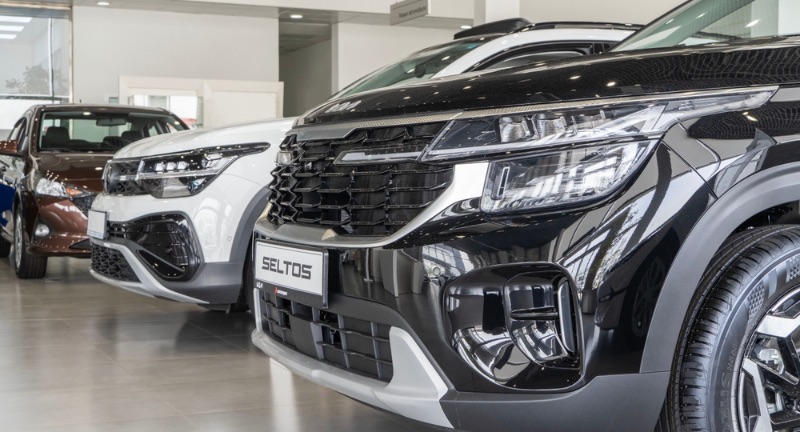
Shutterstock
Deciding between a new and used car is an important consideration. New cars come with the latest features, warranties, and no previous wear and tear but depreciate faster. Used cars are generally cheaper and have slower depreciation, but they might come with higher maintenance costs and limited warranties. Weigh the pros and cons of each option based on your budget, needs, and preferences.
Make and Model

Shutterstock
The make and model of the car can significantly influence your buying decision. Different brands have reputations for reliability, performance, and customer service. Consider what each brand and model offers in terms of features, safety, and technology. Research and compare different makes and models to find the one that suits your lifestyle and needs best.
Fuel Efficiency

Shutterstock
Fuel efficiency is a key factor for many car buyers, as it affects the ongoing cost of running the car. A more fuel-efficient car will save you money on gas and is also better for the environment. Consider the type of driving you’ll be doing most often—city, highway, or a mix—as this can affect the car’s fuel efficiency. Check the miles per gallon (MPG) ratings and consider hybrid or electric options for even greater efficiency.
Safety Features

Shutterstock
Safety features are critical considerations when buying a car, as they protect you and your passengers. Look for cars equipped with modern safety technology such as airbags, anti-lock braking systems (ABS), electronic stability control, and advanced driver-assistance systems (ADAS). Check crash test ratings from reputable organizations like the IIHS and NHTSA. Prioritize vehicles with higher safety ratings and essential safety features that meet your needs.
Reliability

Shutterstock
Reliability is a major factor when purchasing a car, as it affects maintenance costs and overall satisfaction. Research reliability ratings from trusted sources like Consumer Reports or J.D. Power. Consider the car’s track record for durability and frequency of repairs. A reliable car will save you time and money on repairs and ensure a smoother ownership experience.
Insurance Costs

Shutterstock
Insurance costs can vary significantly depending on the car’s make, model, age, and safety features. Obtain insurance quotes for the cars you’re considering to understand the potential costs. Some vehicles are cheaper to insure due to their safety ratings and lower repair costs. Factor insurance premiums into your budget to ensure you can afford coverage.
Resale Value

Shutterstock
Resale value is an important consideration if you plan to sell or trade in the car in the future. Some cars depreciate slower than others, retaining more of their value over time. Research the resale values of different makes and models to determine which cars hold their value best. A higher resale value can provide a better return on investment and lower long-term costs.
Financing Options

Shutterstock
Understanding your financing options is crucial when buying a car, especially if you’re not paying in full upfront. Explore options like dealership financing, bank loans, or credit unions. Compare interest rates, loan terms, and monthly payments to find the best deal. Pre-approval for a loan can give you a better idea of your budget and strengthen your negotiating position.
Vehicle History (for Used Cars)

Shutterstock
When buying a used car, reviewing its vehicle history is essential to avoid potential problems. Obtain a vehicle history report from services like Carfax or AutoCheck to check for accidents, title issues, or past ownership details. A clean history can indicate that the car was well-maintained and free from significant issues. Be cautious of cars with multiple owners or a history of frequent repairs.
Mileage (for Used Cars)

Shutterstock
Mileage is an important consideration for used cars, as it indicates the level of wear and tear on the vehicle. Lower mileage usually suggests less use and potential for a longer lifespan, but this isn’t always the case. Consider the type of driving the car has undergone—highway miles are generally less taxing than city miles. Balance mileage with the car’s age and overall condition to assess its value.
Maintenance Costs

Shutterstock
Maintenance costs can vary widely between different makes and models. Some cars require frequent servicing or expensive parts, while others are known for their low-cost maintenance. Research typical maintenance schedules and costs for the cars you’re considering. A car with lower maintenance costs can save you money and hassle over the years.
Warranty

Shutterstock
Warranties provide peace of mind by covering certain repairs and maintenance costs. New cars often come with manufacturer warranties that cover a range of components for a specified period or mileage. Some used cars may have remaining factory warranties or offer certified pre-owned warranties. Understanding the warranty coverage can help you avoid unexpected repair costs.
Test Drive

Shutterstock
A test drive is a vital step in the car-buying process, allowing you to experience the vehicle firsthand. Pay attention to the car’s handling, comfort, and any unusual noises during the drive. Test different driving conditions, such as highway and city streets, to get a comprehensive feel for the car. A test drive can reveal potential issues and help confirm your choice.
Technology Features
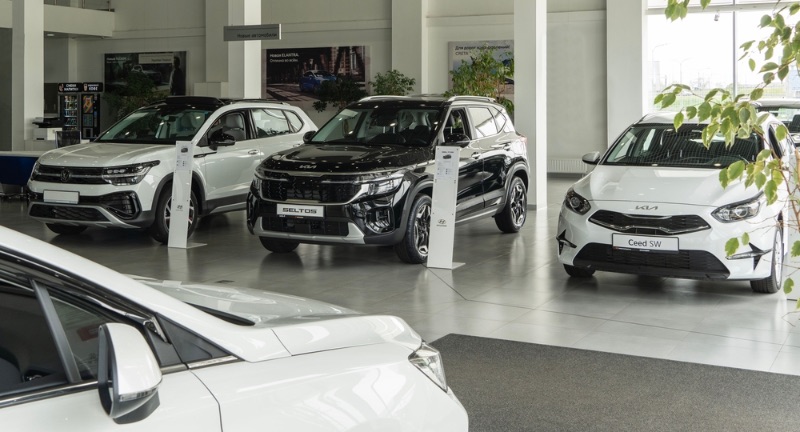
Shutterstock
Modern cars come equipped with a variety of technology features that enhance safety, convenience, and entertainment. Consider what features are important to you, such as Bluetooth connectivity, navigation systems, or advanced driver assistance systems. Assess how user-friendly and accessible these features are during your test drive. Balancing technology with your needs and budget can improve your driving experience.
Cargo Space

Shutterstock
Cargo space is a practical consideration, especially if you frequently transport large items or have a family. Evaluate the trunk size and the flexibility of the seating arrangement, such as foldable or removable seats. Consider how easy it is to access and load the cargo area. Sufficient cargo space can make your car more versatile and convenient for daily use.
Seating Capacity

Shutterstock
Seating capacity is crucial for accommodating passengers comfortably, especially if you have a large family or carpool regularly. Consider the number of seats, legroom, and ease of access to rear seats. Test how comfortable the seats are for long journeys and whether they provide enough support. Choose a car that matches your passenger needs and lifestyle.
Interior Comfort

Shutterstock
The interior comfort of a car affects the overall driving and passenger experience. Pay attention to the quality of materials, seat comfort, and available features like climate control. Consider the layout and usability of the dashboard and controls. A comfortable and well-designed interior can enhance your satisfaction and enjoyment of the car.
Exterior Design

Shutterstock
While aesthetics might not be the most critical factor, the exterior design of a car can influence your purchase decision. Consider the car’s shape, size, and style, as well as its practicality and aerodynamics. Think about how the design fits your personal taste and lifestyle. A car that appeals to you visually can enhance your pride and satisfaction in ownership.
Performance

Shutterstock
Performance is an important aspect of a car, affecting its handling, acceleration, and overall driving experience. Consider the car’s engine power, torque, and responsiveness to understand how it performs on the road. Test different driving conditions to see how the car handles curves, inclines, and various speeds. Choose a car with performance characteristics that match your driving style and needs.
Engine Type
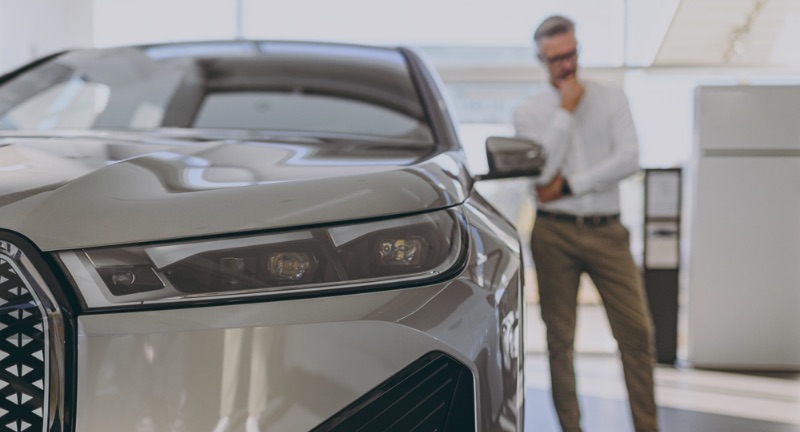
Shutterstock
The type of engine can significantly impact a car’s performance, fuel efficiency, and maintenance needs. Decide between options such as gasoline, diesel, hybrid, or electric engines based on your driving habits and environmental concerns. Each engine type has its advantages and disadvantages in terms of power, cost, and efficiency. Understanding these differences can help you choose the engine that best suits your requirements.
Transmission Type

Shutterstock
The choice between manual and automatic transmission affects the driving experience and convenience. Manual transmissions often provide more control and are preferred by some driving enthusiasts, while automatics are generally easier and more convenient for everyday driving. Consider your preference and driving conditions when choosing the transmission type. Some modern cars offer advanced automatic transmissions with manual mode, providing a balance between control and convenience.
Fuel Type
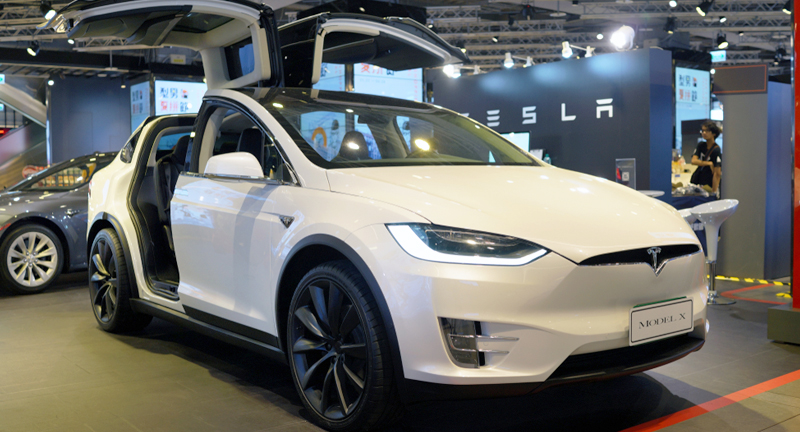
Shutterstock
Shutterstock
Choosing the right fuel type is essential for balancing cost, performance, and environmental impact. Options include gasoline, diesel, hybrid, and electric vehicles, each with its benefits and drawbacks. Consider fuel availability, pricing, and infrastructure for charging or refueling. Evaluate your driving patterns and environmental concerns to determine the most suitable fuel type.
Road Tax

Shutterstock
Road tax varies depending on the vehicle’s emissions, engine size, and age. Research the road tax requirements for the cars you’re considering to understand the annual costs. Environmentally friendly cars often benefit from lower road tax rates. Consider how road tax will affect your overall budget when purchasing a car.
Emissions
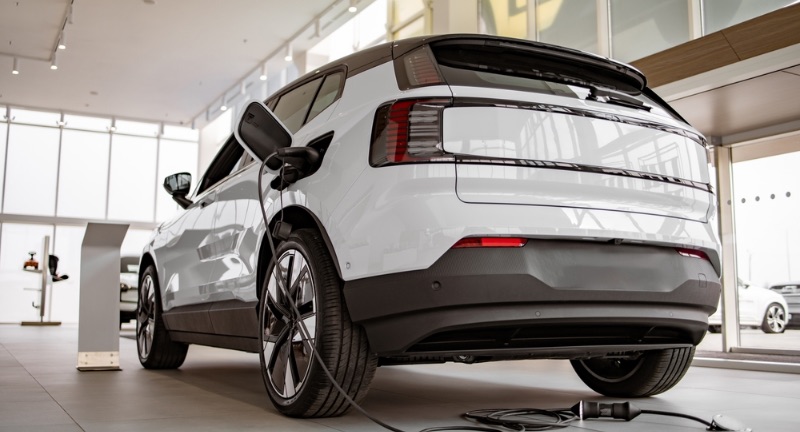
Shutterstock
Emissions are a significant consideration for environmentally conscious buyers and can impact road tax costs. Research the emissions ratings of the cars you’re interested in, particularly CO2 emissions. Some vehicles, like hybrids and electrics, offer lower emissions and tax benefits. Consider how a car’s emissions align with your environmental values and financial goals.
Dealer Reputation

Shutterstock
The reputation of the dealership can significantly influence your car-buying experience. Research reviews and ratings of the dealerships you’re considering to assess their customer service and reliability. A reputable dealer is more likely to provide transparent pricing, quality vehicles, and good after-sales support. Choose a dealer with a proven track record to ensure a smooth and trustworthy transaction.
Availability of Parts

Shutterstock
The availability of parts is important for the maintenance and repair of your vehicle. Some brands or models might have parts that are harder to find or more expensive. Consider the availability of aftermarket parts and the presence of local service centers. Choosing a car with readily available parts can reduce downtime and maintenance costs.
Roadside Assistance

Shutterstock
Roadside assistance is a valuable service that can provide peace of mind in case of a breakdown or emergency. Many manufacturers offer roadside assistance programs as part of their warranty or as an additional service. Consider the coverage, duration, and services included, such as towing, battery jump-start, and lockout services. A comprehensive roadside assistance plan can enhance your confidence on the road.
Trade-in Value

Shutterstock
If you plan to trade in your current vehicle, its value can significantly impact your new car purchase. Research the trade-in value of your car using tools like Kelley Blue Book or Edmunds. A higher trade-in value can reduce the amount you need to finance for your new car. Be prepared to negotiate the trade-in value separately from the new car price to get the best deal.
Incentives and Discounts

Shutterstock
Manufacturers and dealers often offer incentives and discounts to attract buyers. Look for promotions such as cash rebates, low-interest financing, or special lease offers. These incentives can significantly reduce the cost of a new car. Stay informed about current deals and be ready to act quickly to take advantage of the best offers.
Parking Space

Shutterstock
Consider the availability and size of parking space where you live and work. Ensure that the car you’re considering will fit comfortably in your garage or parking spot. Larger vehicles may require more space and could pose challenges in tight urban areas. Evaluate your parking needs to avoid future inconvenience and potential damage.
Climate Suitability

Shutterstock
The climate in your area can influence the type of car that best suits your needs. Consider features like all-wheel drive for snowy regions or powerful air conditioning for hot climates. Some cars are better suited for extreme weather conditions due to their design and features. Choose a car that will perform well in your local climate to ensure comfort and reliability.
Future Needs

Shutterstock
Consider your future needs and how they might change over the life of the car. Think about potential changes in family size, commuting distance, or lifestyle that could affect your vehicle requirements. Choose a car that can adapt to your evolving needs to avoid having to replace it prematurely. Planning ahead can ensure that your car remains a good fit for years to come.
Color Options

Shutterstock
While color may seem like a minor consideration, it can affect your satisfaction with the car and its resale value. Choose a color that suits your personal taste and complements the car’s design. Keep in mind that some colors are more popular and may be easier to resell in the future. Consider practical aspects, such as how certain colors show dirt or scratches.
Personal Preferences

Shutterstock
Personal preferences play a significant role in choosing the right car for you. Consider what features, styles, or brands you prefer and how they align with your lifestyle. Think about the non-negotiable aspects that will make you happy with your purchase. A car that matches your personal preferences can enhance your driving experience and satisfaction.
Reviews and Ratings

Shutterstock
Reading reviews and ratings from trusted sources can provide valuable insights into a car’s performance, reliability, and value. Look for reviews from automotive experts and current owners to get a comprehensive understanding of the car. Pay attention to common praises and complaints to identify potential strengths and weaknesses. Reviews can help you make an informed decision and avoid buyer’s remorse.
Alternative Options (Leasing or Car Sharing)

Shutterstock
Consider alternative options to buying a car, such as leasing or using car-sharing services. Leasing offers lower monthly payments and the ability to drive a new car every few years, but you don’t own the car at the end of the lease. Car sharing can be a cost-effective and convenient solution for those who don’t need a car full-time. Evaluate your needs and budget to determine if buying, leasing, or sharing is the best option for you.
Conclusion

Shutterstock
Choosing the right car is a tedious process that involves looking at both your personal preferences and practical considerations. By thoroughly considering things like cost, performance, safety, and future needs, you can make sure that your purchase will be a good investment. Don’t forget to take advantage of test drives and seek out reviews to get a better understanding of all your options. With careful planning and research, you can be confident in your choice of vehicle that aligns with your lifestyle and budget. Ultimately, making an good decision will lead to a more satisfying and enjoyable experience with your next vehicle.
More Stories
-


GMA Shake-Up Puts George Stephanopoulos In Crosshairs
-


23 Fun Facts You Never Knew About The Penny
-


18 Staycation Ideas That Won’t Break the Bank
-


The Million-Dollar Myth: Retire Rich Without the Fortune
-


Jelly Roll Fears Daughter Following In His Footprints
-


Leaving the USA? Here’s Your Essential Guide to Moving Abroad
Trending
-

 Entertainment3 weeks ago
Entertainment3 weeks agoLife Lobs Tom Brady A Curveball
-

 Celebrity News6 days ago
Celebrity News6 days agoShiloh Jolie-Pitt’s On The Move
-

 Celebrity News6 days ago
Celebrity News6 days agoKevin Costner Still Wants Jewel In His Crown
-

 News6 days ago
News6 days agoGMA Shake-Up Puts George Stephanopoulos In Crosshairs
-

 Celebrity News1 month ago
Celebrity News1 month agoSimon & Garfunkel Bridge Their Troubled Water
-

 Celebrity News3 weeks ago
Celebrity News3 weeks agoRyan Seacrest In A Spin
-

 Entertainment2 days ago
Entertainment2 days agoAriana Grande Is Wicked Thin
-

 Entertainment3 weeks ago
Entertainment3 weeks agoCNN’s Kaitlan Collins Wants To Anchor Her Love Life
